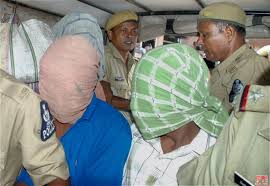
District Sessions Court Judge Gyana Ranjan Purohit held Mitua alias Santosh Patnaik guilty under section 376 (rape) of IPC, two other accused persons Gajendra Digal and Saroj Bahdei were convicted under section 354 (outraging modesty of a woman) of IPC.
The court is likely to pronounce the quantum punishment for the three convicted persons soon.
Six persons were acquitted due to lack of evidence.
The nun was raped at Baliguda in Kandhamal district on August 25, 2008. Thirty-eight people were killed in the Kandhamal riots which occurred in the tribal-dominated district in the aftermath of the killing of VHP leader Laxmanananda Saraswati at his Jalespata Ashram on August 23.
The nun had alleged she was attacked, gangraped and paraded semi-naked through the streets two days later in Kandhamal.
The trial in the case began here in August 2010.
The Crime Branch of Odisha Police probed the incident and filed charge sheet against the nine persons in first phase.





Comments
Add new comment